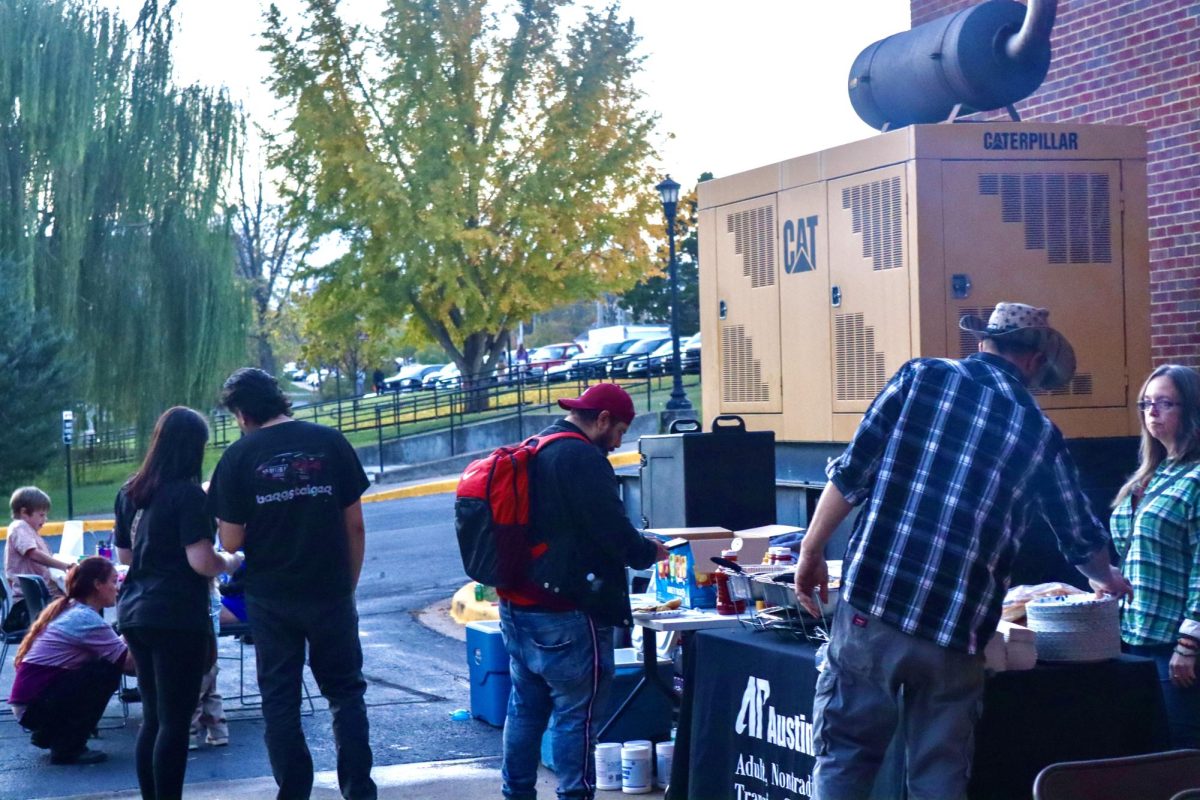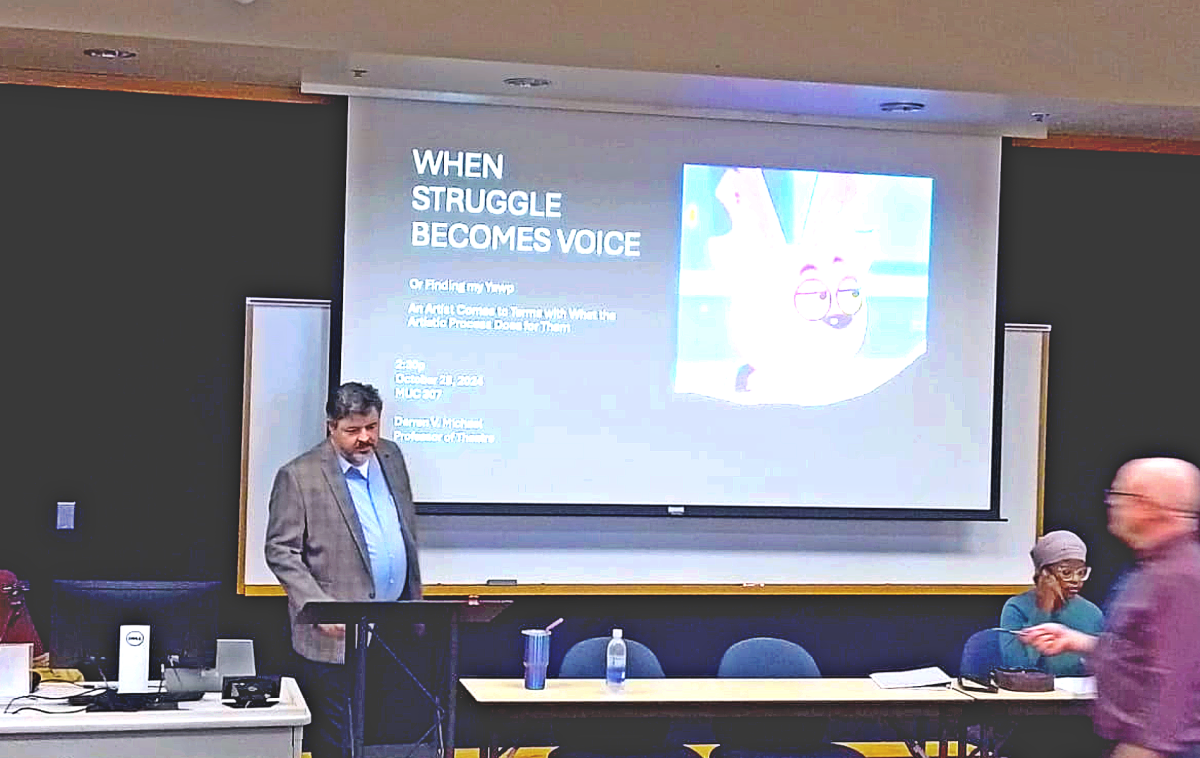The APSU campus welcomes students, both traditional and non-traditional. This we know, but what may come to surprise few, are the 25 plus feral cats and kittens that roam the campus perimeter as they please. The organization “Paws-to-Care” is doing their part to care for and shelter these felines that have no other place to call home.
Forming in 2012, with the backing of previous APSU president Tim Hall, the mission statement behind Paws to Care is to help feral cats on campus by simply “transforming” individuals’ kindness, generosity and selflessness into “organized care.” It all started with a long-time staff member on campus, who had been feeding and trying to care for the campus cats herself, covering the costs to do so, for years. Eventually, faculty and staff on campus noticed her efforts and awareness has since become widespread on the matter.
“Feral cats have a tough and usually shortened life.” Vice President of Student Affairs Sherryl Byrd said. “They are outside all the time no matter the weather conditions.”
Due to their tough upbringing and lifestyle not in any stable household, fending for themselves most all the time, the cats that reside on APSUs campus are not encouraged to be interacted with by students. Often, these cats will run if approached by students or anyone for that matter. No one is excluded from this fact, not even the individuals that aid and feed the cats on a regular basis. Instead, Paws to Care encourages students and campus visitors to instead admire the felines from afar.
“I’m pretty sure I saw a Bengal cat once before,” freshman graphic design major Kianna Johnson said. “They’re all so cute and seeing them on campus or on my way to class warms my heart.”
If a student did want to get more involved with the cats, they are welcomed to adopt a cat or kitten or foster until permanent homes can be found. While Paws to Care tries to neuter the adults as diligently as possible, a few kittens from time to time are born. If one kitten is not caught, they can multiply until the campus is seemingly overrun with felines. Paws to Care also has an account with the university used to pay medical expenses and buy food. They welcome monetary donations or food donations. A $300 donation provides one feral cat with vaccinations, a spay/neuter procedure and food for one year. As little as one dollar however, can go a long way.
Byrd said she has adopted two Peay kittens of her own.
“I’m a cat person, so I’ll do whatever I can to help,” freshman psychology major Nya Howard said. “Seeing groups like this on campus is really cool and I think unique.”
Until a cat can find a proper home, they will claim APSU as their territory. Similarly, they tend to stay in the general vicinity of their feeding station. This evidently helps with keeping track of them. Other ways Paws to Care keeps tabs on each cat is by taking pictures of the ones they haven’t successfully caught, as well as the ones they have caught and have been successfully vaccinated. Moreover, the tip of one ear is clipped so that from a distance, the cats that have been caught can be easily identified.
So why allow technically stray cats to roam campus to begin with? APSU is just one of many locations around Clarksville, Tennessee with a feral cat colony. Byrd suggests a removal of the cats entirely is seemingly impossible.
“There is a difference between a feral and a stray,” Byrd said. “If all the cats were removed, it wouldn’t take long for others to appear in their place. A location this large, with lots of people and food, just draw them in despite best efforts. Most campuses are actually home to feral cats.”
Paws to Care urges students to speak up on any cats they see on a regular basis that appear to be sick, injured or distressed. Similarly, kittens are priorities. Once they are old enough to be weaned, the organization needs to capture them, so they can learn to socialize with humans and get adopted. The process only takes a few days.
The organization has seen success stories. After upgrading to a more detailed record system, Paws to Care has spayed/neutered and released seven cats, adopted out over 20 kittens and one adult. Currently, three kittens and one adult are being fostered, with two of the kittens potentially moving to permanent homes.
“Just think of how the campus population would have grown if all these cats had not been fixed and the kittens adopted,” Byrd said.
Paws to Care said if students would like to donate or volunteer with the organization, they should contact Halliburton at [email protected]. The Office of Student Affairs is on the main floor of the Morgan University Center, room 206. If they would like to report suspicious behavior dealing with these cats, please contact APSU police.







